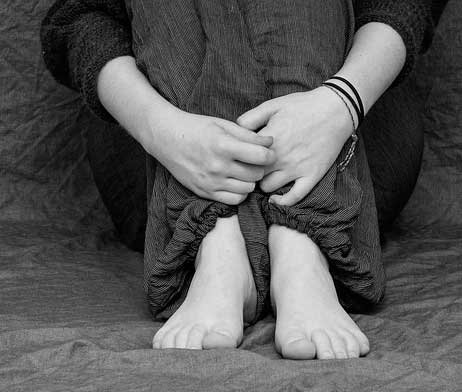How to deal with and overcome stage fright?
Performance anxiety, commonly known as “stage fright”, may be observed in people of all experiences and backgrounds, from those who are completely new to being in front of an audience to those who have done so for years.
Anxiety usually has physical symptoms that may include a racing heart, a dry mouth, a shaky voice, blushing, trembling, sweating, lightheaded-ness, impaired vision and nausea. Being the center of attention and having “all eyes on you” can be stressful. Your body reacts to this situation in much the same way as it would if you were being attacked.


The second step is learning how to redirect your negative thoughts, beliefs, images, and predictions about performing in public. Doing this is not as difficult as you might think.
PRACTICE.
Are you feeling well prepared for a task at hand? You can keep up a brave front for your colleagues teachers audience or auditioning panel but you can not fool yourself. Is the piece you’re about to perform something you feel comfortable and secure performing while “just practicing” ? Is it well rehearsed?


START SLOW.
Ask a supportive friend or a family member you are otherwise very comfortable around to come and listen to a rehearsal/class. Organize a mini performance for your friends and family, volunteer to sing a nice song at your cousin’s small wedding, try finding a venue that hosts try-out concerts where, for a small fee, you can try out a piece or two in front of a friendly audience. Work slowly on increasing your audience so that your confidence can grow accordingly.
EXERCISE.
In order to learn how to redirect your negative thoughts and beliefs, common sense also applies.
Performing at your best level is often a “top sport” activity so adopting a healthy lifestyle is a good place to start. Exercise, eat a healthy diet, get adequate sleep. Practice controlled breathing, meditation, biofeedback, yoga and explore other strategies/methods to help you relax and redirect your thoughts when they turn negative. It is best to practice some type of relaxation technique every day, regardless of whether you have a performance, so that the skill is there for you when you need it.


BEFORE THE PERFORMANCE.
On the day of the performance avoid excess caffeine, Eat a sensible meal with complex carbohydrates a few hours before you are to perform so that you have energy and don’t get hungry. Take a (short) walk, jump up and down a couple times or shake out your muscles to ease your anxious feelings before the performance.
Shift the focus off of yourself and your fear to the enjoyment you are providing to the spectators. Don’t focus on what could go wrong. Instead focus on the positive. Learn how to visualize your success.
Makes yourself look good – you will feel better. (This doesn’t mean you need to spend a lot of money on your wardrobe. It means to dress according to the occasion in an outfit that you feel good in).
Should I use medications for stage anxiety?
There are many young singers asking questions about medication to “control anxiety” in particular Beta blockers.
First thing you need to know about beta blockers is: they are prescription cardiac medication! Their main purpose is to lower blood pressure and heart rate. Beta blockers work by blocking the effects of the hormone epinephrine, also known as adrenaline, therefore the physical symptoms of stress response are reduced.
However the side effects of this medication commonly include dizziness, headache, fatigue, diminished concentration, nausea and in more extreme cases and cases of unmonitored or prolonged (ab)use: cold extremities, fainting, depression, sleep disturbances, nightmares, hallucinations, short term memory loss, high or low blood sugar, stomachaches, flatulence, constipation, diarrhea, dry mouth, vomiting, heartburn, bloating, impotence or decreased libido, difficulty urinating, bronchospasm, cough, joint pain, and muscle cramps, rashes and anaphylactic shock (sudden unconsciousness or death) .
The reports on using the beta blockers as a performer are mixed. While it’s a (fairly common) practice for performers, sportspersons and politicians at a very top level you should keep in mind that those people are under a strict medical supervision. Taking prescribed medication without actual prescription is not only illegal in most countries and potentially very dangerous for your health but, when unsupervised, it could also negatively affect your important performance or audition if you decide to just try it out there and then.
If you have explored every other option (and I doubt you truly have) I recommend talking to your doctor and see what are his thoughts on the subject. Be very careful!
Final thoughts
On a final note, a documentary on the subject by American filmmaker John Beder came out in fall 2016: through the lens of professional classical musicians, “Composed” explores the many ways we experience and can address performance anxiety. Christoph Eschenbach, interviewed in the movie along with many others, put it this way: “The film explores what without exception all of us, performers, have experienced and known well – first, love for our craft and stage, and then performance anxiety at the other end of this beautiful and exciting spectrum. Congratulations to the director John Beder and his team for completing this project and for inviting all of us to a meaningful and necessary conversation.” Andrew Hitz, host of the popular “The entrepreneurial musician“, interviewed John in the 83rd episode of his podcast. Definitely worth listening to!
These tips should help reduce performance anxiety. But if they don’t, talk to a counselor or therapist trained in treating anxiety issues. Confronting your fears and learning ways to reduce and manage anxiety can be empowering. It will it make you feel good about yourself and become a more confident performer, too.
Do you use any particular method to get rid of stage fright? Do you have any questions? Do let me know in the comments below and if you found this post useful don’t forget to share it!







